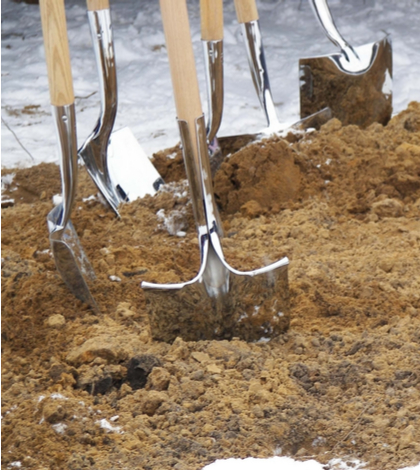Thanks to a $5 million grant from the State Water Resources Control Board and a $9.3 million loan at zero interest from the Drinking Water State Revolving Fund the Arvin Community Services District (ACSD) broke ground late last week on a $14.3 million project to resolve arsenic contamination problems in the district’s drinking water. Arvin is a severely disadvantaged community in Kern County located 15 miles southeast of Bakersfield.
Arvin has lacked a safe, reliable and permanent supply of drinking water for more than a decade. All six of the district’s supply wells have naturally occurring arsenic concentrations above state accepted limits, and the district has been under a U.S. Environmental Protection Agency (EPA) order since 2008 for failure to comply with the Safe Drinking Water Act. The new project, with an expected completion date of March 31, 2021, will provide a safe drinking water for the district’s population of 20,850 people.
“This project is part of the effort to meet the state mandate for clean, safe and affordable water as a human right,” said State Water Board Member Laurel Firestone. “The burden of contaminated drinking water falls heavily on disadvantaged communities like Arvin that can least afford to fix the problem. The State Water Board is working hard to find funding and solutions for those communities.”
Arvin is one of more than 300 communities across California that lack access to safe drinking water. Overall, nearly one million people currently lack access to safe drinking water in California. Disadvantaged Arvin residents have a median household income of less than 60 percent of the state average at just $33,198. The community also has a disproportionate burden of environmental problems, including poor air quality; in 2007 the U.S. EPA listed Arvin as having the highest levels of smog of any community in the United States.
The recent groundbreaking to resolve the Arvin district’s arsenic contamination problems is actually phase 2 of the project. The first phase was completed in 2016 and was funded with a $4.5 million grant from the State Water Board through Proposition 84. The Arvin CSD provided the remaining $275,000 for the project, which included drilling two new wells that meet the state’s arsenic limits and replaced two of the contaminated wells.
Phase 2 of the project is now underway and will include developing three new municipal water wells that meet state standards for arsenic, along with the equipment and pipelines to connect them to the existing distribution system. A one-million-gallon steel storage tank and booster pumping plant at one of the existing wells is an additional part of the project. The second also provides funding to abandon and destroy five of the contaminated wells. The U.S. EPA is funding and replacing the sixth well through the federal Superfund program.
In order to provide safe drinking water for Arvin CSD’s customers 118 filtration treatment systems were installed in water fountains at community sites such as schools, parks and libraries. The interim measure allowed people to fill smaller containers, like water bottles, while three large centralized filling stations, located at the Arvin CSD’s offices, allowed residents to fill up to five-gallon containers. Funds for this $568,000 interim solution came from the State Water Board’s Cleanup and Abatement Program.
The financing agreement with the State Water Board requires the Arvin CSD to establish and maintain water rates necessary to cover operations and maintenance costs. The operating and maintenance costs for this project are estimated to be similar to Arvin CSD’s current water operating and maintenance costs and are not to increase of the water rates of Arvin CSD’s current customers.
 California Water News Daily Your Source For Water News in California
California Water News Daily Your Source For Water News in California


